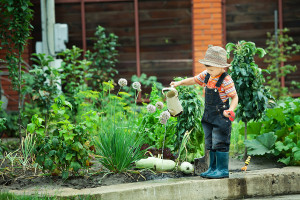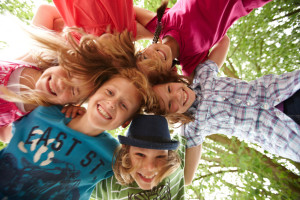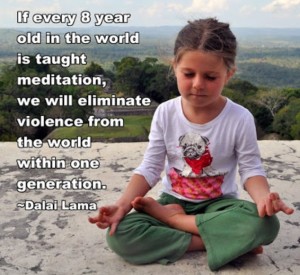After attending the premier of Overfed and Undernourished last Wednesday night on the Gold Coast, I have been giving a lot of thought to our up and coming generations. I am only 31 years old, and yet in my lifetime the world has changed a staggering amount. Evolution, synonymous with the words development, advancement, progression and adaption, has taken the human race, in my opinion, to a frightening new place. And this ‘evolution’, with all its positive connotations has lead us in a mere 15-25 years, to epidemic obesity, childhood obesity, skyrocketing lifestyle-related diseases, and I fear, a future of reduced life expectancy. If children are starting to suffer from weight related, ‘adult’ diseases such as type 2 diabetes, high cholesterol levels, high blood pressure and so on, it is not a far stretch to imagine they won’t be having the expected 80-odd years on this planet. Is that not frightening?
So what can we do about it? We can educate. We can lead by example. We can make the ability to be healthy something that is within everyone’s grasp. Having given this topic a lot of thought, I have put some of my simple tops tips into this blog. Some of the following lessons I learnt from my parents, and others have come through my experiences being a naturopath and nutritionist. If you need more information, or want to explore some personalised advice that would work best for your family, please contact me. One of the naturopathic principles I strongly believe in is Docere– the doctor is a teacher. I would love to teach you how to be healthier, and how to make your kids healthier and happier.
Grow a Veggie Patch
This is one of my strongest childhood memories. My parents always kept a veggie patch down the back of our garden and when I was 4 I remember pulling fresh baby carrots from the earth with clumsy, chubby hands, brushing off the dirt and eating them straight from the ground. If I close my eyes and concentrate, I can still smell and taste them- they were the best carrots in the world. Most kids love veggie gardens. Teach your children how things grow, help them pick food for dinner, and get them involved in food production. You don’t need a huge garden, a few pots will do. How much fun is it to eat cherry tomatoes straight off the vine?
I heard Jaime Oliver was recently shocked that so many Australian children couldn’t recognise common fruit and vegetable items or were unaware of where and how these items grew. In a recent survey of 1600 children aged between 6-17, 92% didn’t know that bananas grew on plants. Yes plants. Goodness knows where they thought they came from…
The documentary Overfed and Undernourished suggested giving your children the responsibility of looking after the veggie patch, watering, weeding and picking things for dinner. This can encourage your child to eat those ‘yucky’ vegetables and as I recall, there is nothing better than the taste of freshly picked produce. Having a veggie patch can also cut down on your food bill. Organic fruit and veggies are expensive, so growing some of your own can help save dollars.
Food Consumption, Preparation and Healthy Cooking
Here is another thing I learnt from my parents: if it’s not in the house, you can’t eat it. I have heard of parents struggling to feed their children healthy food because “All they want is ice cream and junk”. If you have a household that is junk free, there is no choice but to eat something healthy. As bad as the initial tantrums might be, children will not starve themselves to death if they don’t get the food they want.
At school we did our 2 years of compulsory home economics where we baked spice cake and quiche, but other than that I never really learnt to cook. Cooking (for the first 4 years of my grown up life) consisted of a lot of packets, jars, take-aways and microwaved frozen meals. Once I started studying natural medicine, food preparation and healthy cooking was trial and error until I finally got the hang of it. If you teach your children healthy food preparation skills from an early age, they’ll never have to depend on packet rubbish. Yes, they may choose the packet stuff over something healthy, but the skills will be there to call on when needed. It’s about planting the seeds.
Food as Medicine and Home Health Tips
Teach your children about food as medicine. If they are getting a cold, explain about boosting vitamin C levels for immune support, encourage taking garlic as natures antibiotic, eliminate dairy and bananas as mucous producers, and explain to them that by having a fever, their body is trying to kill the bug and make them better. Of course be careful with temperatures in children, keep watchful eye on it and use pharmaceutical measures if necessary, but teach your children that is OK to be sick. Teach them that antibiotics are a last resort, not something to be used at the first sign of a sniffle. Teach them that they need rest and sleep and lots of fluids. Teach them not to ‘soldier on’.
You don’t need to be a naturopath to learn about food as medicine or other home naturopathic remedies. There are plenty of books out there, including children’s health based books, with information about natural medicine you can use safely at home. Or you can consult your naturopath to make up a home first aid kit instead of grabbing sore throat lozenges and headache pills.
The Importance of Exercise
If you are an active family, exercise will come naturally to your children. When I was a kid, it used to be called ‘playing’. This is one change to lead by example and there is a need to have strict rules in place. My parents had a rule of 1 hour of TV per night. At the time we thought it was terribly cruel, but as a result my brother and I spent hours outside playing, running, jumping on the trampoline, climbing trees, and riding our bikes. When Playstations became popular, we were allowed to play only a limited amount per day.
On weekends and after school, we were signed up to Nippers (surf lifesaving), soccer, touch football, netball, gymnastics, dancing, and a host of other sports (whether we wanted to or not), and when we were not at these activities we would take family trips to the beach or the park and play outside for hours.
Increased exercise will result in improved mood and demeanour, as your children burn through all that excess energy that can often result in ‘ratty’ behaviour. Setting up your children’s metabolism while they are young, can help them set healthy patterns all their life. If their little bodies are used to being active, building muscle and burning fat, weight problems are less likely to occur down the track. Their imagination is also nurtured, and creativity encouraged.
Relaxation and Stress Management Techniques
A friend of mine went to her first yoga class with her Dad at the age of 5. Now, 25 years later, she is teaching yoga and breathing techniques to her own children. Another of my friends has taught her child all about the benefits of massage which he enjoys on a regular basis. I don’t think it is ever too early to encourage and teach your children to relax.
When I look back I can see that as a school kid I went through periods of high stress, as most children do. Exams, teachers, bullies, friends, crushes; those formative years can be incredibly stressful for young people. And what I now realise is that I had no idea that how I felt was ‘stressed’. I knew I felt bad, but I couldn’t explain why. I sometimes felt nauseous, had feelings of dread, and even suffered anxiety and panic attacks, but not being aware of what ‘stress’ was, I had no idea how to explain these symptoms. A doctor put me on a heart burn medication when I explained my nausea…
In hindsight I feel more communication and education would have helped. Perhaps some easily accessible counselling or a more understanding approach from the school and my parents may have helped me understand what was going on. One significant event stands out in my mind during that time. We had a lovely ‘hippy’ art teacher (who didn’t?), and one day she lead the class through a guided meditation, lying on the floor of the art room. I remember how amazing it made me feel, how relaxed and calm. I remember how peaceful and connected the whole class felt afterwards. I can’t help but think how wonderful it would have been to do this on a regular basis, as opposed to just a random day when there was no curriculum to teach.
Teach your children about stress, and teach your children how to manage stress. Be it with exercise, yoga, deep breathing, talking, counselling, whatever might work best for your child. Give them tools to use in stressful situations so they don’t feel out of control and powerless. If you don’t feel you can teach them these things, seek out someone who can. Look at natural therapies to support stress management such as naturopathic medicine, nutrition, acupuncture, massage and so on. Kids respond so well to naturopathic medicine, I have seen a simple dose of nightly magnesium change a worried, 8 year old insomniac into a happy, relaxed kid.
The Dali Lama says that if each 8 year old child was taught meditation, violence would be eliminated from the world in one generation. Imagine your child going through life calmer, more relaxed and happier than you have been. Now that, to me, is a future worth striving for.
I know that simply being an adult can mean that time is not always on our side. How amazing would it be to know that schools were teaching your children how to grown their own food, use simple food as medicine principles, understand the elements to a healthy life, teaching and practicing relaxation, stress reduction and meditation techniques, and encouraging healthy, regular exercise and play? If a school like that popped up next to Hogworts, it would break my heart a little bit, but I would still have to send my kids to Healthy School (I am sorry Harry Potter!).
Unfortunately, until that day comes, we will have to do our best in leading by example and teaching our children everything we can that will set them up for a better, brighter future. At the end of the day, we are not talking about a new, incurable epidemic that is attacking our children, we are talking about habits, actions and choices that are making our kids sick. We have the power to make these changes, we can reshape the future for the generations to come. It frightens me that it has got so bad so quickly. Society is slowly destroying the future of our new generations through lack of education, and big changes are not being made. Perhaps if it was an airborne disease creeping in to slowly kill our children, people would be taking it more seriously… As the quote goes “Be the change”. It’s up to you.
Rhianna
![]()
Tagged as:
children, dairy free, education, energy, exercise, food as medicine, happiness, health, kids, relaxation, vegetable garden, vegetarian, wheat free, yoga




4 commentsAdd comment
wonderful article! thank you for the amazing tips!
Thank you for the feedback Veena!
Rhianna 🙂
Dear Rhianna, I share the same fear as you when it comes to how momentarily the earth is now spinning on the tight rope of development. The spin is too much we forget to weigh its aftereffects. With kids of my own, this article is very useful and educational. Keep writing ?
Rhianna, thanks for sharing this fascinating blog. I totally agree that children today barely today know the names of common fruits and vegetables or where they are grown. They definitely need to be introduced to nature at a young age so that they grow up to nurture it. Exercise too should be mere play to them.
1 trackback